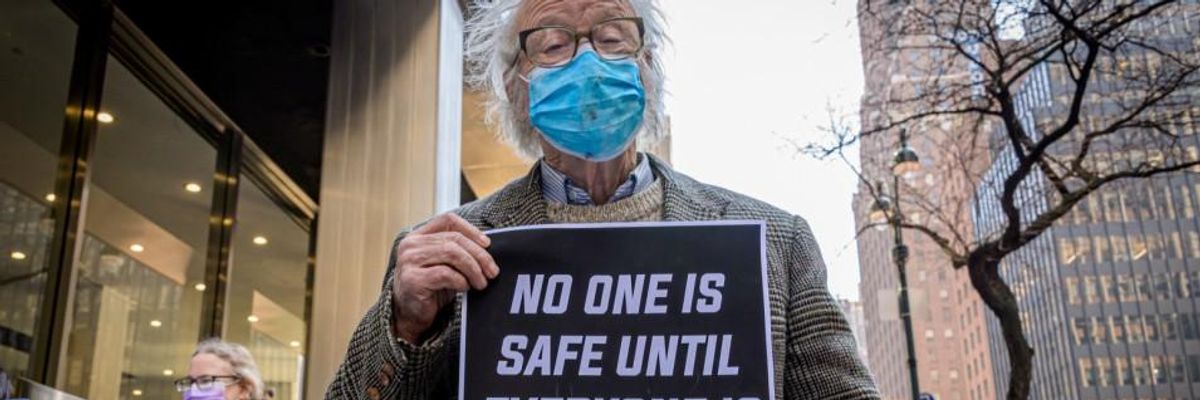We're a year into the pandemic, and thanks to vaccines, it appears we may finally have an end in sight. But, as is too often the case, vaccine distribution has been anything but equitable.
People in rich countries, such as the United States and countries in the European Union, are receiving a far larger share of vaccine doses relative to their share of the global population, according to analysis from Agence France-Presse. Meanwhile, the poorest countries are left waiting in despair as Covid-19 cases continue to rise.
Of the more than 455 million doses of Covid-19 vaccines that have been injected, people in in high-income countries have received 56 percent--far more than their 16 percent share of the global population.
Corporate profits are not more important than the lives of millions of poor people around the globe.
People in the 29 lowest-income countries have received only 0.1 percent of vaccines, despite making up nine percent of the global population.
The World Health Organization is sounding the alarm on this inequality.
"The inequitable distribution of vaccines is not just a moral outrage," said WHO Director-General Tedros Adhanom Ghebreyesus in a press conference this week, "it's also economically and epidemiologically self-defeating."
There are many reasons for this growing inequity. One is that rich nations used their wealth to jump to the front of the line and purchase as many doses as possible. As one Yale epidemiologist described it, "It was like a run on toilet paper," with rich countries barging their way through to snap up limited doses like customers did with Charmin at the start of the pandemic.
Another major factor is that Western nations joined up with pharma giants to invest in vaccine development and are protecting corporate patent monopolies. According to leaked documents, the United States, the UK, and the European Union are shamefully blocking further cooperation within the WHO to open up vaccine access.
Global health advocates and nations like South Africa and India are pushing for a waiver in WTO intellectual property rules that would allow expanded global vaccine production and quicker end to the pandemic.
If we are really serious about ending this pandemic as swiftly as possible, it is imperative that these patents are opened up. Corporate profits are not more important than the lives of millions of poor people around the globe.

